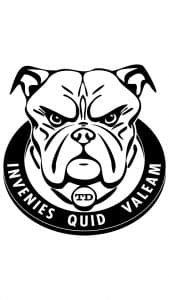CLEVELAND — The closing session of the SMART Transportation Division 2024 National Training Seminar highlighted an eventful year in terms of bus and transit safety. By continuing to communicate safety concerns at all levels SMART-TD can continue to lead the charge for member safety. Union leadership shared several victories and outlined the road ahead.
Bus Day on the Hill
For the first time, members of the SMART-TD Bus Department engaged legislators and representatives from federal agencies in our nation’s capital.
To raise awareness about members’ issues, National Legislative Director Greg Hynes, Bus Vice Presidents Alvy Hughes and James Sandoval and the Bus and Transit Assault Prevention and Safety (BTAPS) Committee made 15 visits to members of Congress and to the Federal Transit Administration (FTA).
“We’d never done that before for bus and transit,” President Jeremy Ferguson said. “The assaults have to stop. We’re done with it. Our operators have to be protected.”
By all accounts, the event got the attention of Capitol Hill and the FTA.
“I was getting reports all day and the second day, they rolled into FTA — the first time FTA has heard from SMART,” President Ferguson said. “My hat’s off to all of you to what you accomplished on that day.”
FTA Chief Safety Officer: Communication is key
Joe DeLorenzo, one of the chief safety officers of the FTA, addressed transit union officers at the seminar. He stressed that there are practical steps to improve safety across the board — but the key first step is to share information with the union and with the watchdog agencies.

“There’s a lot of good information out there,” he said. “But we still need more.”
The kind of safety information the FTA needs from our members has broadened. Transit union officers and their members give the real picture of what’s happening. Their reports are crucial, he said.
Bus operators: Don’t accept problems as just “part of the day”
“The more information that I have, the easier it is for me to try and navigate all of the challenges to try to get something done, something that can be helpful to you all in Washington, D.C.” DeLorenzo said. “For a lot of bus operators, a lot of the things that have happened over the years have just come to be ‘part of the day’ and not even things to be reported, but they are, and we need to kind of move forward to doing that.”
DeLorenzo stressed that individual union members have the power to change things to be safer for operators and for their ridership.
“Safety is really driven by the people implementing it, and that’s where those ideas and communications need to come from,” he said.
SMART-TD transit union provides safety reporting tools
The union’s BTAPS committee is developing a new form to report transit assaults.
Similar tools provide a way to report technology failures on freight locomotives and rail hours of service violations. Union leadership uses evidence from member reports to confront management, and to support negotiations for stronger contracts and better legislation.
Union-issued public comments make a difference
SMART-TD’s National Legislative Department frequently issues comments that help shape federal policy. A comment directed to the FTA by SMART-TD helped craft a provision that the representatives on bus/transit safety committees have to be split 50/50, rather than be tilted toward management.
That couldn’t have been done without open communication between SMART-TD transit union members, international officers and the FTA. Our work makes a difference.
“There’s no silver bullet for safety culture,” DeLorenzo said. “It’s been a challenging time for transit agencies, which makes it more and more important to focus on safety.”
